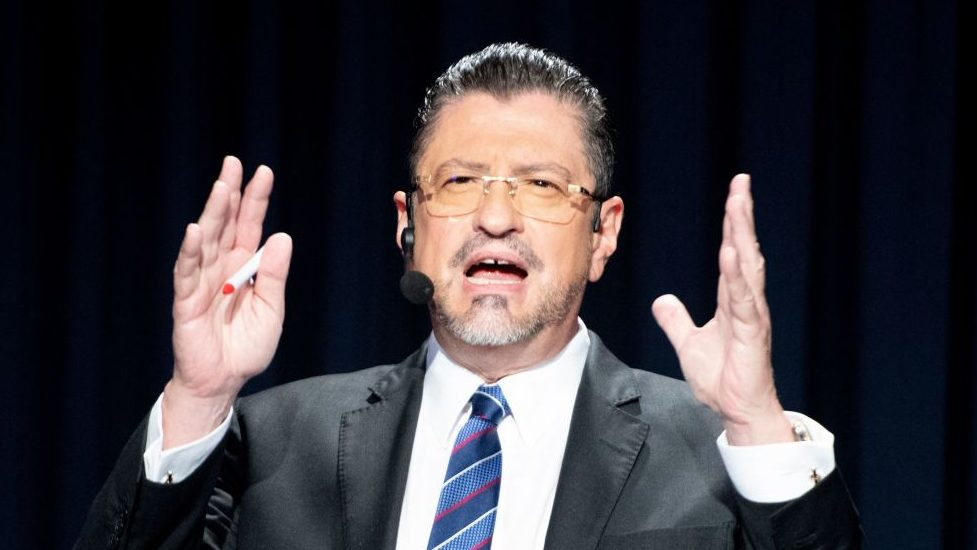A total of 33 of 57 legislators approved on Monday a legislative report that questions the actions of Costa Rica president Rodrigo Chaves and his campaign team in the last elections.
For opposition legislators, there is no doubt that there was illegal financing through a structure not reported to the Tribunal Supremo de Elecciones (TSE) – the Supreme Election Tribunal.
The report indicates that money from companies and foreigners would have financed Chaves’ political aspirations for the presidency and thus, must be investigated by the Prosecutor’s Office.
During appearances that lasted a year and a half, the legislative commission investigating the campaign financing anomaly determined that Chaves was not only aware of his legal limits, but that he was also the intellectual author of the alleged crimes.
“President Chaves was one of the intellectual authors of this parallel financing,” said Ariel Robles of the Frente Amplio party with six legislative seats.
Meanwhile, legislator Vanessa Castro of the Partido Unidad Social Cristiana (PUSC), the party with nine legislative seats, referred to the arguments that the legislators studied to point out Chaves as the main author of the use of illegal money in the campaign.
“The TSE regulations establish the obligation to document an applicant’s campaign expenses and donations, from the moment a pre-candidacy is made official. Normally, a trust can be used, but when it is denatured as in this case, we can speak of a secret trust, which was a think tank to talk about the country and not be the operational and financial source of a political party in taxi mode.
“As of August 1, 2021, there is evidence that the trust was looking for a candidate. They did a frantic search for a party at a certain point and from there, they did seek to eliminate the trust and yet, during the process, they received donations from companies and foreigners, which is illegal,” Castro said.
Meanwhile, Pilar Cisneros, of the ruling Partido Progreso Social Democrático (PPSD), with nine legislative seats, indicated that the opposition was never able to prove their accusations.
On Monday, the legislator and former television news co-anchor described the investigation against Rodrigo Chaves as a “political circus”.
“The reason for the commission was to verify or reject the creation of illegal financing and for this reason, we (the party) supported the creation of the commission, but we were far from knowing that the commission would be a political and unbalanced circus, to attack President Chaves,” said Cisneros, who was very active in the 2022 presidential campaign, boosting the image of the Chaves given her long career in Costa Rican television news.
“The reason for the commission was to verify or reject the creation of illegal financing and for this reason, we supported the creation of the commission, but we were far from knowing that the commission would be a political and unbalanced circus, to attack the President Chaves,” said Cisneros.
This Monday, the legislators occupied the plenary session to discuss the reports of the political party financing commission, in which the creation of an alleged parallel financing structure for the Social Progress party was analyzed, where money was received from companies and foreigners supposedly.
“They were never able to demonstrate a parallel structure in the Chaves campaign, because the Costa Rica Próspera trust and the campaign never coexisted, as the TSE itself indicated, since before the ratification of Don Rodrigo (Chaves) as a candidate the electoral law did not govern. Control only applies with ratification. Let us remember that on September 18 (2021) the trust was dissolved and a day later Don Rodrigo’s candidacy was made official,” Cisneros added.
On the other hand, the legislators of the Partido Neuva Republica (PNR), which holds seven legislative seats, rejected the accusations against President Chaves and called the press “Pinocchio” for publishing lies.
At this juncture, following arguments and scandalous appearances, opposition legislators are firm in their position that Chaves is the “intellectual author” of the two parallel financing structures created in the campaign for the PPSD.
Up to six years in prison
The formation of an illegal financing structure for a political campaign could be punished with a prison sentence ranging between two and six years for offenders, according to the Código Electoral (Electoral Code).
The sanction aims to prevent the creation of parallel structures outside the law and in this way, stop the entry of funds from companies and foreigners or worse, from illicit activities. (https://qcostarica.com/majority-of-legislators-point-to-rodrigo-chaves-as-the-intellectual-author-of-illegal-campaign-financing/)



































